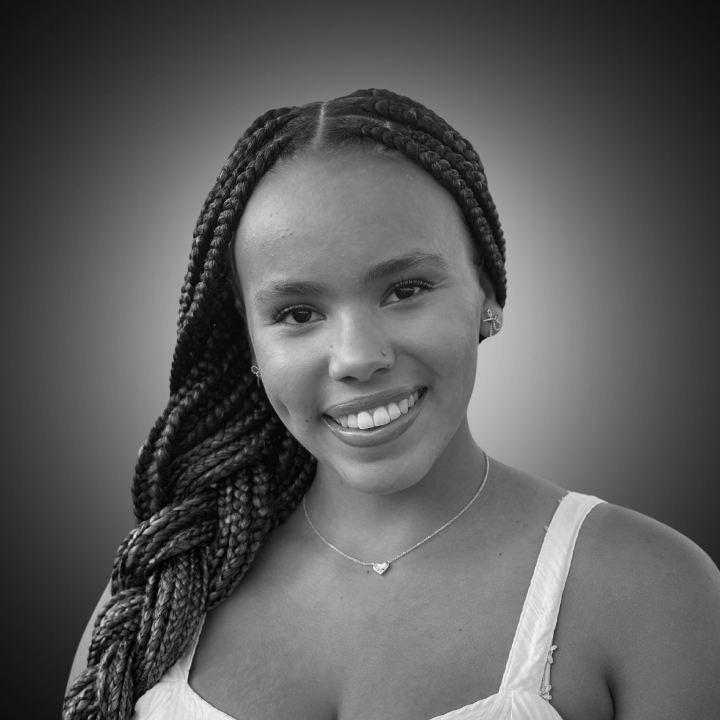Kennedy Murphy began attending Experience Camps, a national, no-cost program for grieving children who have experienced the death of a parent, sibling or primary caregiver, at the age of 7 and is now dedicated to helping others navigate their own loss.
“I hope people in all different professions acknowledge that no matter how young you are when you lose someone, you still need the support, help, and counseling that any adult would.”
EW: Death is often considered taboo. Was there a defining moment in your life that ignited your passion to discuss and address end-of-life experiences openly?
Kennedy: At camp a few years ago I met a girl who was a Willow (the youngest group of kids at camp). It was the third or fourth day and I asked her how she was enjoying camp so far. She said she loved camp because no one made fun of her for talking about her dad. That moment along with the hundreds of other stories I have heard at camp inspired me to make real change and make sure the next generations of grievers after me would not have to go through the same bullying, shame, and isolation as I did.
EW: How has attending Experience Camps influenced your perspective on dealing with grief and loss— and please give us a preview of what you’re talking about on the End Well stage.
Kennedy: Attending Experience Camps in the first few years was extremely beneficial for me because I was surrounded by people who understood and supported me. As I grew older, hearing the stories of other grievers helped me realize how some of my traits were related to my grief.
For example, I never realized that my hyper-independence was related to my grief. Seeing other kids at camp who were extremely independent and mature made me realize that since we all experienced grief at a young age, we matured quickly and have more complex emotions than other kids our age. In my case, this led to extreme self-sufficiency. After my dad passed, I didn’t want to burden my family during this difficult time. Now, as a teenager, I often take on a lot of responsibility and have an “I’ll just do it” attitude when working in a team or doing anything.
It took me a long time to realize that not wanting to be a burden as a kid has bled into my personality. Many people may see it as being a “go-getter” or a “hard worker,” but constantly feeling like you have to take everything on is exhausting. I have been feeling this way since I was five years old which is not the way you want to live. Now that I have recognized this behavior, I try my best to curb it and notice when I’m trying to take over. I remind myself that other people can handle things too; it doesn’t all have to be on me all the time.
EW: In your experience, what is the most significant societal norm or belief about death and dying that needs to be challenged or redefined?
Kennedy: I believe that the most important norm about grief that needs to be changed is not talking about it. From an emotional standpoint not talking about your grief and bottling it up is never good, it can lead to unhealthy coping habits or feelings of isolation and being overwhelmed. Also, I have always thought that telling stories about your person and sharing photos is how you keep their memory alive and that is extremely important to me.
EW: How do you hope various professions and disciplines can come together to create a more human-centered approach to end-of-life care and experiences?
Kennedy: From the standpoint of someone who lost her father in kindergarten, I believe my teachers could have handled it differently. When I returned to school after my dad passed, my teachers did not acknowledge what happened. They probably thought I was sensitive about it and didn’t want to talk about it, but this only made me feel ashamed of what happened.
When I tell most people that my dad died when I was five, they say, “Oh, you don’t have much memory.” However, I remember the exact moment when the doctor took me in to see my deceased father on the table and said, “He might look a little silly.” That is a memory that will forever be engraved in my head. I also remember sitting in a cold hospital room, with the TV on, not knowing what was going on, scared. I wish someone had taken the time to explain what was happening.
I hope people in all different professions acknowledge that no matter how young you are when you lose someone, you still need the support, help, and counseling that any adult would. Children go through the same extremely complex feelings as adults do, and just because we’re kids doesn’t mean we don’t need the same help.
EW: Fast forward a decade. If the objectives of the End Well Project are realized, how do you envision society’s attitude and practices surrounding the end of life experience?
Kennedy: In a decade I hope to see the stigma around grief reduce, I hope to see children going through loss not being bullied in schools, and I hope to see people of all ages races, and economic backgrounds receiving the help they need to get through their grieving journey.
Kennedy Murphy is a 16-year-old from sunny San Diego with a passion for sports, media production, and supporting others through their grief. Her father, Don Murphy, passed away from a heart attack when she was just 5 years old. At the age of 7, she began attending Experience Camps California, a grief camp that has profoundly shaped her dedication to helping others navigate their own loss.
Kennedy Murphy will speak at End Well 2024 on November 22, 2024. Join live or virtually!
